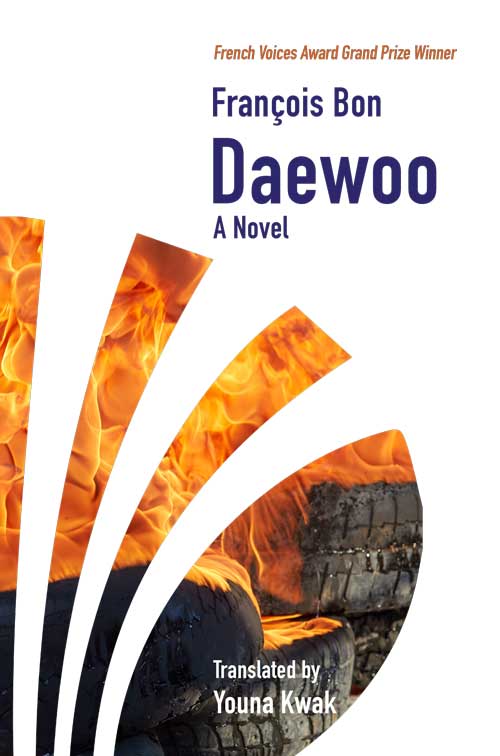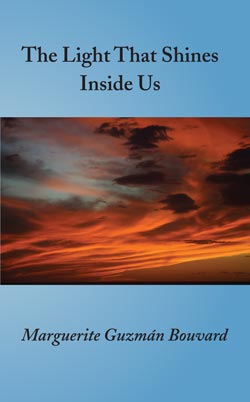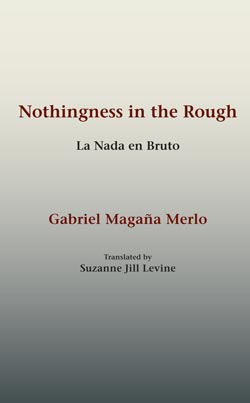Description
Daewoo
François Bon
Translated by Youna Kwak
Preface by Megan Behrent
ISBN: 978-1-944884-71-0 (pbk.)
978-1-944884-72-7 (ebook)
(June, 2020)
French Voices Award Grand Prize Winner
“Women’s voices brought to life to recount an invisible history…” Martine Laval.
Inspired by the closing of three Daewoo factories in the Lorraine region of France in 2002, François Bon’s novel Daewoo intertwines journalism, fiction and theater, to explore what actually happens in the lives of working people when they are abruptly stripped of their livelihood and, consequently, their sense of security, purpose, and dignity.
In the early 2000s, Bon traveled to the Lorraine intending to do research for a play about the changed lives of the hundreds of suddenly unemployed workers, mostly women, who had assembled microwaves and television sets in the Daewoo factories. But when he arrived he discovered that research was not sufficient, that reportage could not achieve the kind of vigilant witness to events that he sought. To pay homage to truth, he needed fiction; and so Daewoo was born—a novel combining elements of theater, fictional narrative, journalistic research, and imagined interviews, that together testify to the real damage done to people caught in the multi-national economic squeeze, discarded and forgotten like the buildings they once worked in and maintained.
From the Preface by Megan Behrent:
It began with layoffs at the Daewoo plant at Fameck, a manufacturer of the brand’s televisions, in Lorraine, a Northeast region of France, in the spring of 2002. This was the beginning of a “restructuring” of Daewoo’s French plants in the aftermath of the multinational’s bankruptcy amidst revelations that the company was massively in debt. Workers at Fameck went on strike, as did workers at Villers-la-Montagne and Mont-Saint-Martin, two more Daewoo factories in the region, later that year. As the struggle escalated, workers occupied plants and held the CEO hostage. Despite their heroic struggle, within a year, all three Daewoo plants in the Lorraine would be closed. Daewoo Mont-Saint-Martin’s fate was sealed by a suspicious fire, which destroyed workers’ last hopes. In total, one thousand former employees lost their jobs, one thousand lives forever changed by the company’s desperate drive for profit. Daewoo founder Kim Woo-choong, who fled South Korea in 1999, was convicted of fraud upon his return in 2005, but received a pardon shortly thereafter. Upon his death in December 2019, he was eulogized in obituaries in most major U.S. newspapers as the man “Who Strove to Be ‘Automotive Genghis Khan,’” and “who stood for Korea’s best and worst.” The struggle of over a thousand workers in the Lorraine who suffered innumerable losses as a result of his malfeasance and greed was mostly absent from the pages of U.S. newspapers; their voices, lives and aspirations erased from Kim Woo-choong’s and Daewoo’s story.






idesign (verified owner) –
I had never heard of Francois Bon before this title cropped up on the Librarything early review list but the subject matter and the description of the style grabbed my interest so I opted in and I am so glad I did. How this writer has escaped me for so long is beyond me but I shall put it down to the fact that he is experimental and that he is French. His approach to the text is one that constantly tries to push at the expected, the traditional: the boring in short. In this text he contrives a form that is a sort of textual docudrama from number of clever literary devices. One can read this text and almost imagine the TV documentary that covers the closure of the Daewoo enterprise in France from the workers’ perspective. I regularly found myself congratulating him on and smiling at the novelty of his use of forms to achieve his results: he is a master of the new form. Is it a novel? Is it a drama? Is it a documentary? Yes. yes and yes, but it is first and foremost a strong and vital text. It might herald a new future for some texts. In any case I recommend you find a copy and read it for the form and for the content because it is a tour de force.